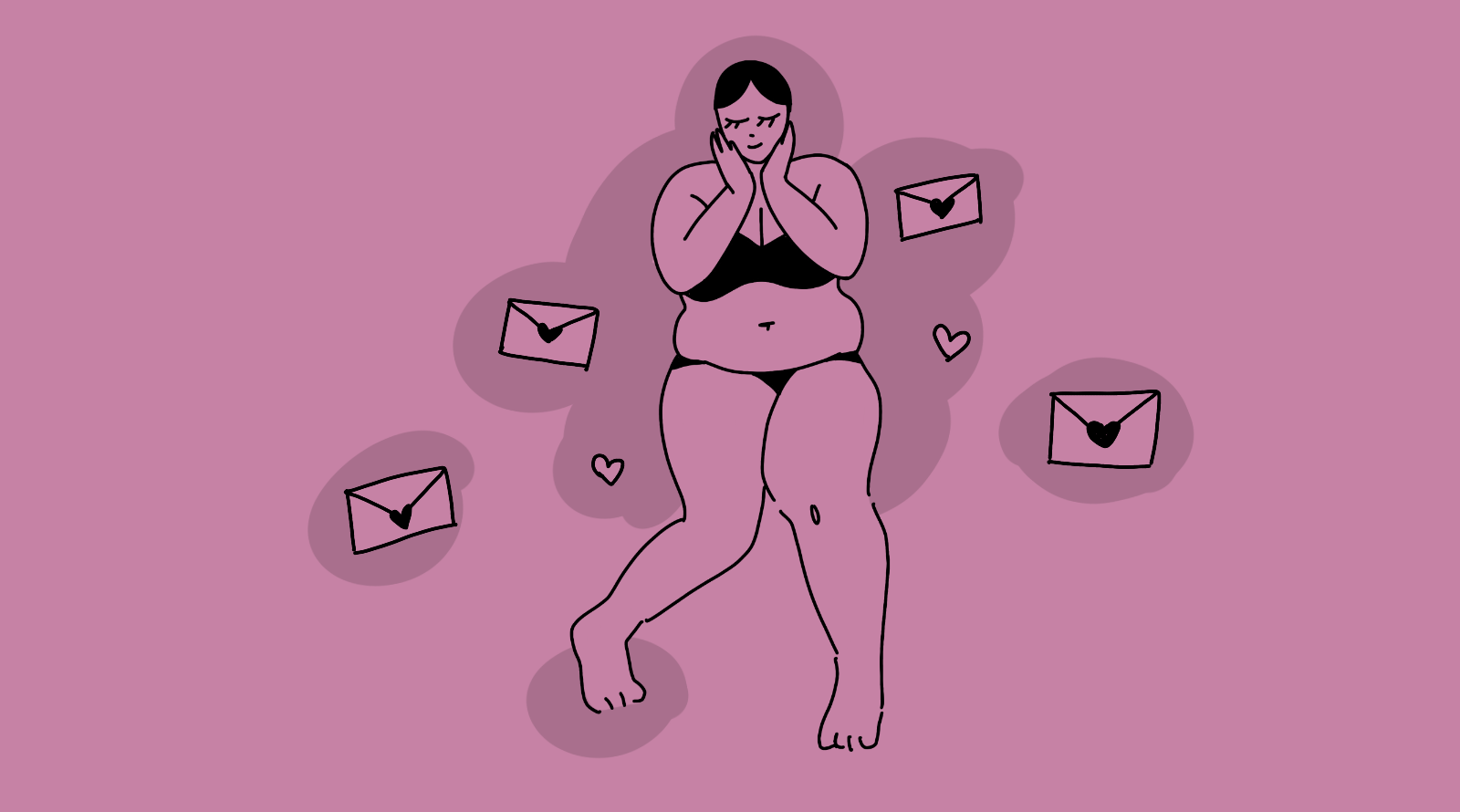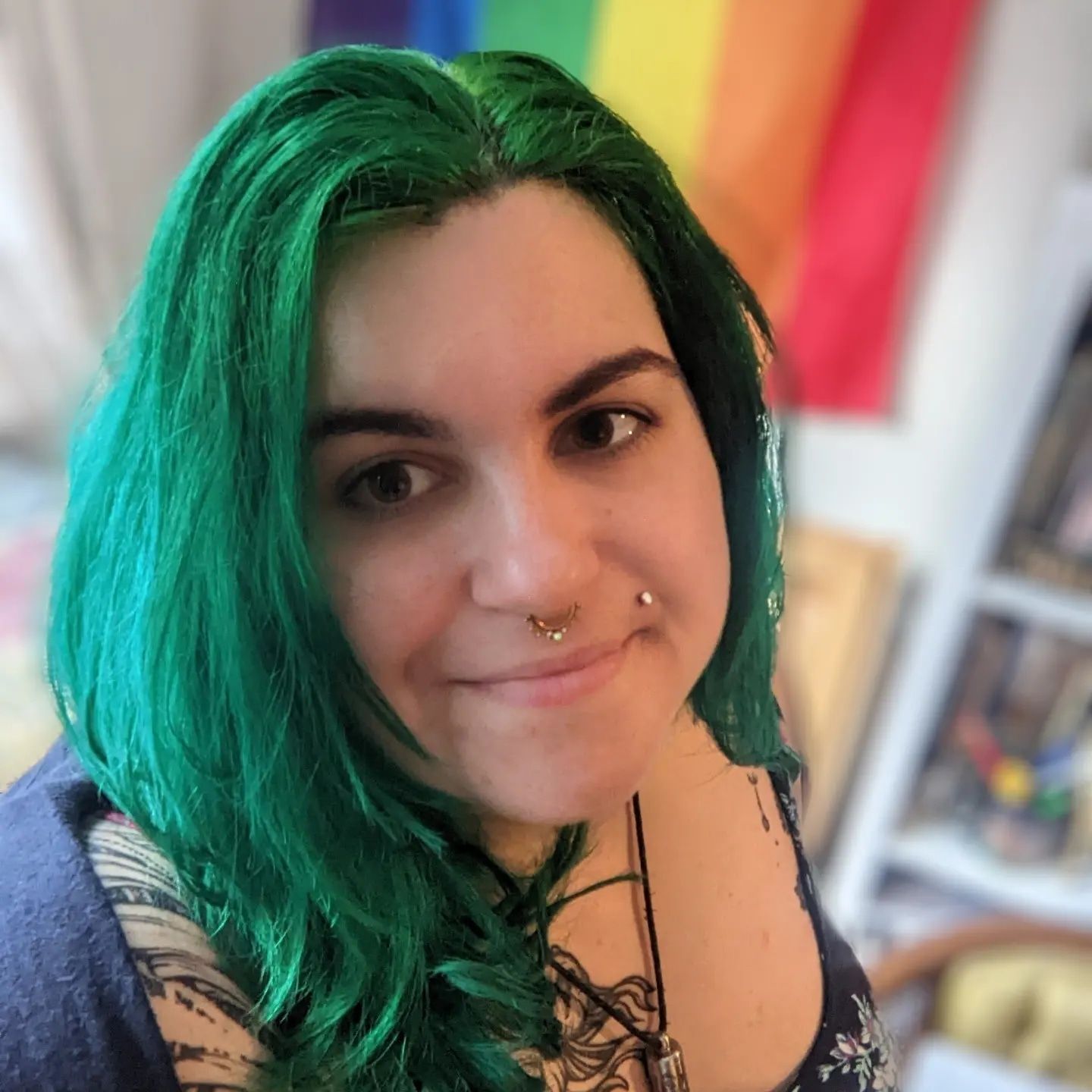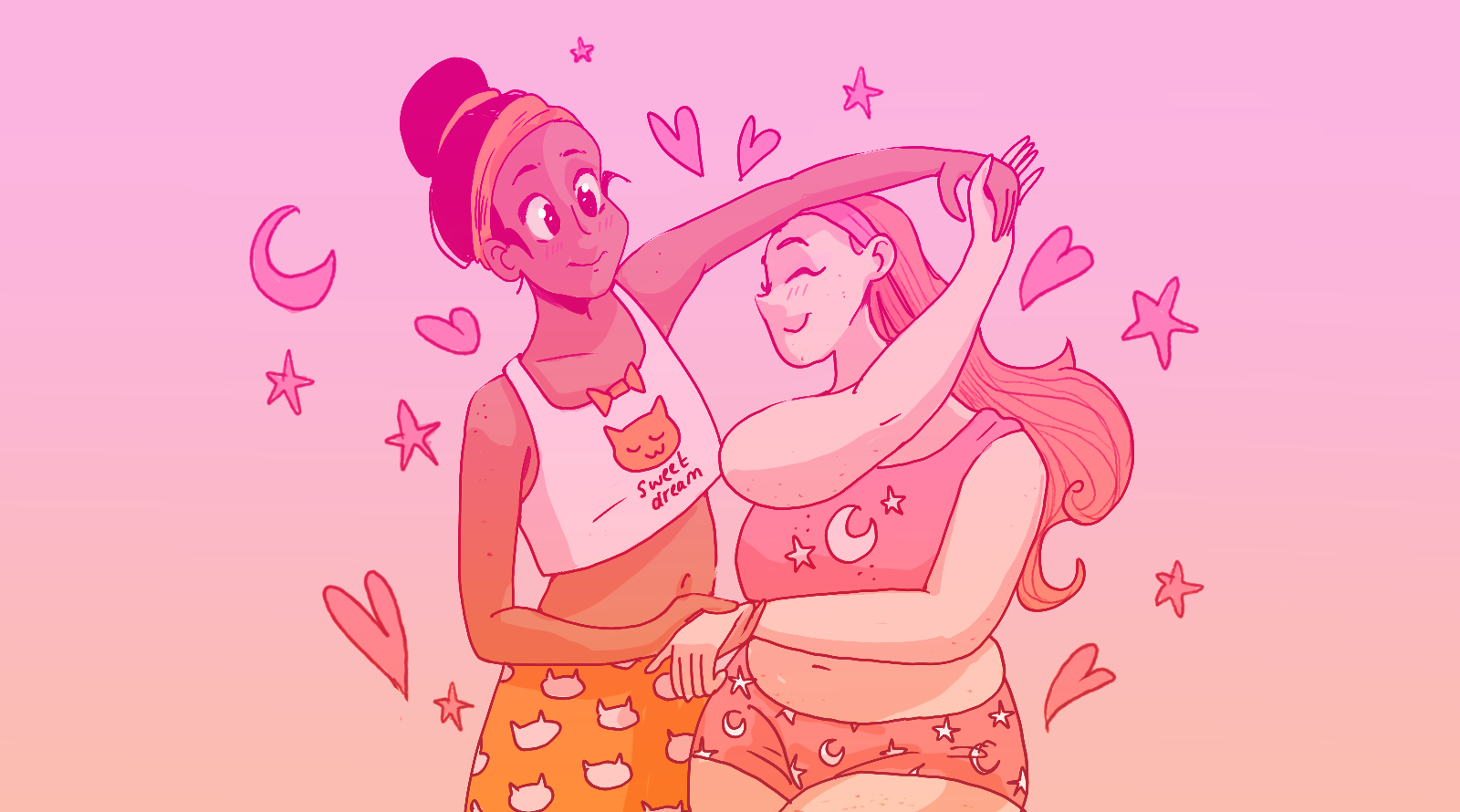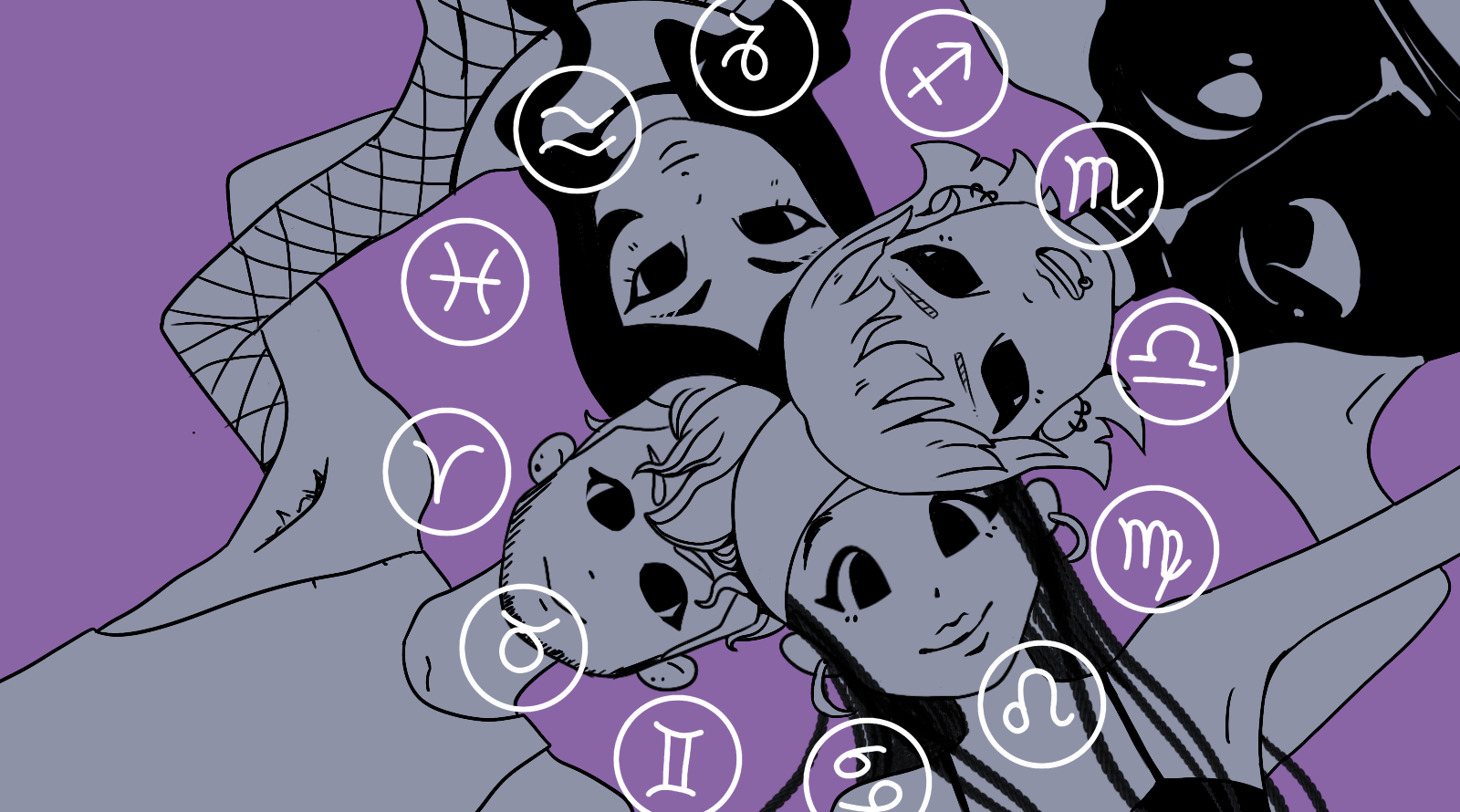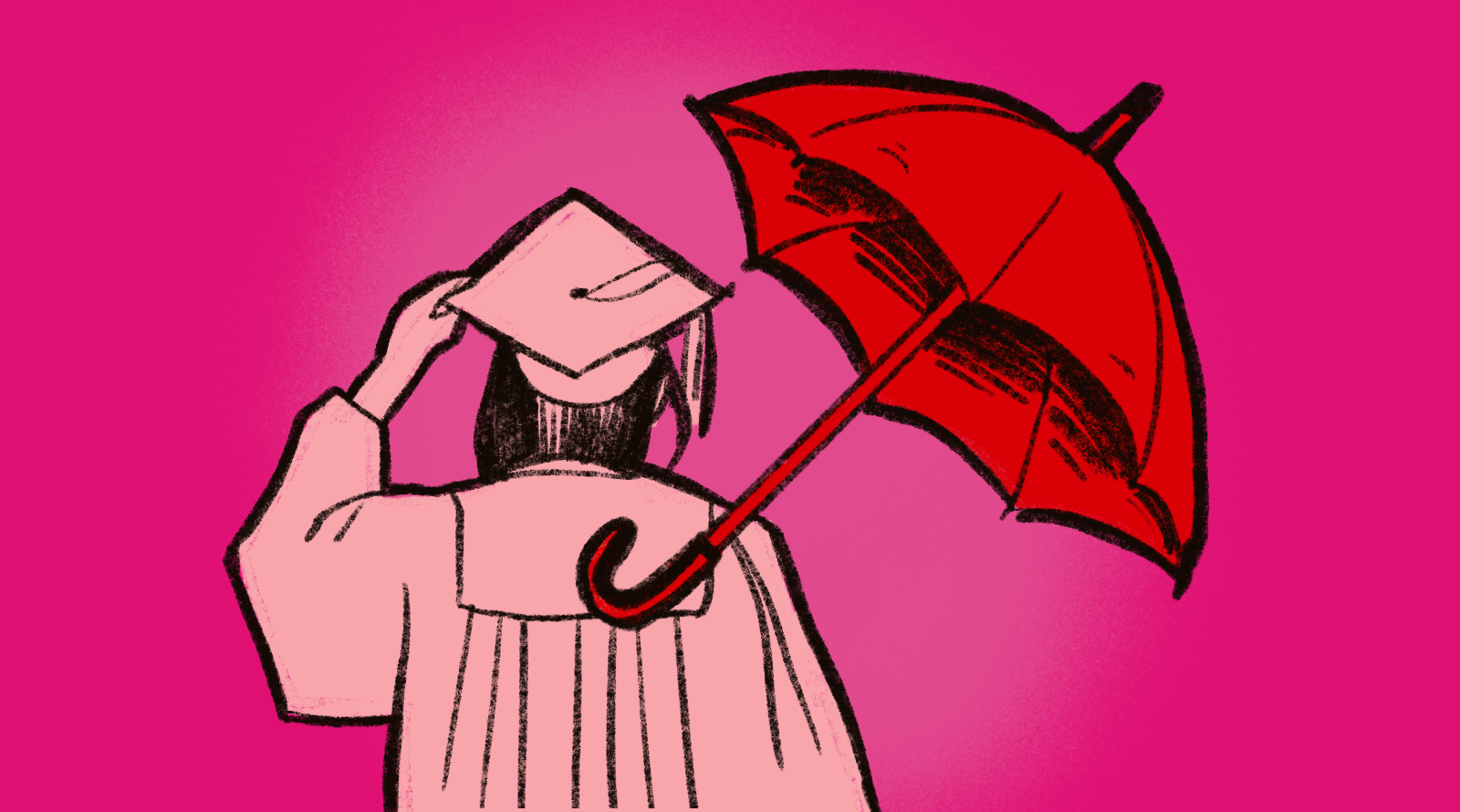Editor’s Note: This essay contains mentions of violence against women, misogyny, anti-fatness, and anti-blackness
I'm fat. While I can say this now as a fact, being fat is something that took me a while to accept – due to both internalized anti-fatness and the very real experience of societal judgments, prejudice, and weight bias. I haven't always been fat and I’ve gotten larger during the time I’ve been a sex worker.
It's difficult to navigate choosing the words to describe my body both accurately and in a way that will draw in clients. A few years ago, when I was adjusting to the size I currently am and how to portray myself in ads, a potential client responded to pictures I had sent and said, “oh I didn't realize you were that big from different angles.” As if my body only exists in certain two dimensional positions. As if my stomach won't bulge when I bend. As if I exist only in still frames and certain poses. After this interaction, I went through and chose pictures I looked fatter in, even though it already says so in my ad.
I'm fat. While I can say this now as a fact, being fat is something that took me a while to accept...
It is so important to make it obvious that I am fat, because there is a violence women face when men are disappointed with our bodies. Being up front is a matter of safety. Anti-fatness exists at an intersection with misogyny, anti-Blackness and objectification of women’s bodies, that insinuates women are only as valuable as they are pleasant objects to look at and as vessels for sexual desire.
When someone messages me to book, I repeat the most important information from my ad to them, such as deposit and cancellation policy, screening, that I am fat and do not shave. A few days ago, while texting a potential client, he said, “You’re not fat. You’re gorgeous.” This is frustrating because it implies that the two are mutually exclusive, in addition to disregarding what I was actually communicating – that I am fat. I told him that yes, I am. This wasn’t something I was saying as a value judgment, criticism or matter of opinion. My goal is to only book with people who actually want to book with me. He then said something about how you have to like yourself before other people like you. Beyond being trite and useless advice, acknowledging my fatness does not mean I don’t like myself or feel as if my body exists in a less desirable form. In hearing this, I hope you’ll consider the implication in your words and thoughts about fatness, and investigate if there might be deeper assumptions you’re not aware of.
Maybe you think that you’re not anti-fat; you just find thin bodies attractive. Maybe that’s true, but I think all of our preferences deserve more consideration. I don’t think anyone can fully detach themselves from their preferences and the cultural standards that shaped them, but that’s not an excuse for upholding bigotry and oppression. While our preferences are often shaped by the structures and systems of the society we live in, our actions taken based on those preferences have impacts outside of ourselves. Those actions can either uphold those systems or move to disempower them.
Maybe you think that you’re not anti-fat; you just find thin bodies attractive. Maybe that’s true, but I think all of our preferences deserve more consideration.
In order to examine preferences from this lens, to question their source, I would start with pushing yourself to dig deeper. If you’re only attracted to thin people, are there judgments that you are making about fat people? Are you making assumptions about their moral, spiritual, or even physical character beyond that they are fat? Do you think that fat people are less inherently worthy or valuable than thin people? If you do, it would suggest that your preference towards thin bodies is a lot more wrapped up in prejudices than just aesthetics.
Did you know that anti-fatness is tied into anti-blackness as well? I recommend reading “Fearing the Black Body: The Racial Origins of Fat Phobia,” by Sabrina Strings if you’re interested in reading more about it. This book provides a deep dive into centuries of context that surround anti-fatness, tracing the roots of these ideals to their anti-Black, classist, sexist and religious roots. Through analysis of medical literature, compared with art and newspaper articles, it becomes clear that fat bodies – especially those of Black women – were believed to be something to fear. A moral fear, rather than anything ‘medical.’ This fear is grounded in racist ideologies that seek to uphold white supremacy through the justification of slavery, colonialism, and genocide. When faced with the amount of data and research provided by Sabrina Strings, it becomes obvious that idealizing thinness reinforces hundreds of years of oppression and dehumanization of Black people, and especially Black women. How do the assumptions made about fat women compare to those used to justify anti-Blackness?
If you’re only attracted to thin people, are there judgments that you are making about fat people? Are you making assumptions about their moral, spiritual, or even physical character beyond that they are fat?
I had an experience recently where I attended an exercise class with someone who I know is a bit fatphobic. He was surprised when I could keep up in the class better than he could, despite the fact I regularly talk about exercising as part of my life. A million people have said it, but it bears repeating, someone’s size does not equate their ability, physical or otherwise. Furthermore, someone’s ability does not equate their value as a human being.
If you’ve realized maybe you're perpetuating anti-fatness and want to do something about it, I would start by looking at the media you consume. Broaden your horizons, look for media that includes a diversity of body shapes and sizes. It’s no secret that the entertainment industry fuels anti-fatness and perpetuates body standards that aren’t realistic for most people. The content we consume can have a strong sway over our preferences and it’s worth checking in or how it might be impacting our biases. Now, despite the fact that we are all people who exist as more than our physical bodies, when someone is hiring a sex worker, they can often lean into their preferences and fetishes in a dehumanizing way. You can filter by so many different physical attributes on escort sites. Even if you do have a preference for thin bodies, what I will ask of you is that you treat fat sex workers as people worthy of dignity and respect, regardless of your attraction or lack thereof. More simply put, if you don’t have anything nice to say, then keep your thoughts to yourself. Sex workers exist as entities beyond the limits of your desire. If you book a sex worker and they’re bigger than you anticipated, that sex worker is still a person who should be treated well.
More on unpacking your preferences and how they connect to larger systems of oppression:
Why our preferences for certain bodies often aren’t preferences at all… - Dawn Serra, Medium
Sabrina Strings explains how ‘fatphobia’ is rooted in racism - Sabrina Strings, This is Now
The racist roots of fighting obesity - Sabrina Strings and Lindo Bacon, Scientific American
Why objectifying women makes men violent - JR Thorp, Bustle
Are you a sex worker with a story, opinion, news, or tips to share? We'd love to hear from you!
We started the tryst.link sex worker blog to help amplify those who aren't handed the mic and bring attention to the issues ya'll care about the most. Got a tale to tell? 👇☂️✨

